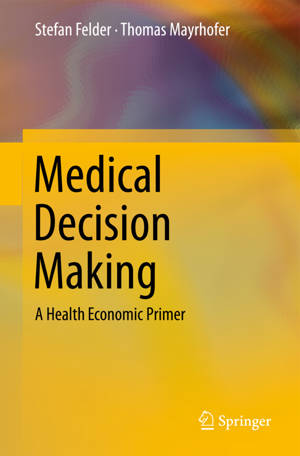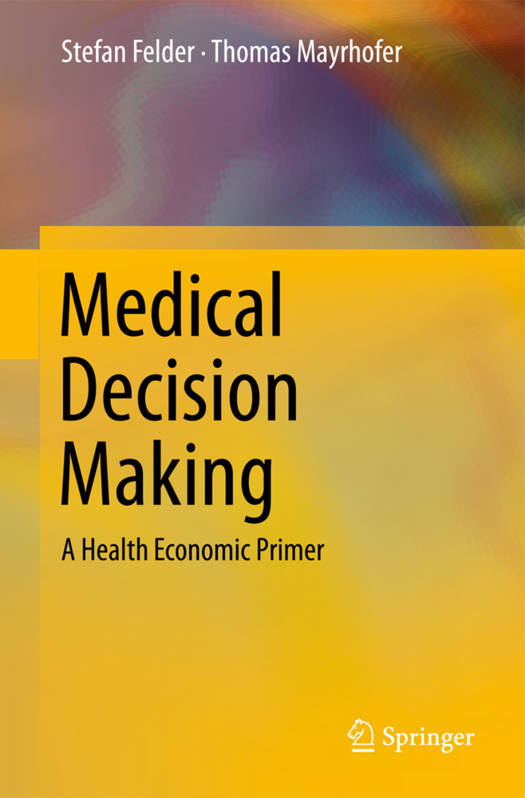
- Retrait gratuit dans votre magasin Club
- 7.000.000 titres dans notre catalogue
- Payer en toute sécurité
- Toujours un magasin près de chez vous
- Retrait gratuit dans votre magasin Club
- 7.000.000 titres dans notre catalogue
- Payer en toute sécurité
- Toujours un magasin près de chez vous
Medical Decision Making
A Health Economic Primer
Stefan Felder, Thomas MayrhoferDescription
This textbook offers a comprehensive theory of medical decision making under uncertainty, combining informative test theory with the expected utility hypothesis. The book shows how the parameters of Bayes' theorem can be combined with a value function of health states to arrive at informed test and treatment decisions. The authors distinguish between risk neutral, risk averse and prudent decision makers and demonstrate the effects of risk preferences on physicians' decisions. They analyze individual tests, multiple tests and endogenous tests where the test result is determined by the decision maker. Finally, the topic is examined in the context of health economics by introducing a trade-off between enjoying health and consuming other goods, so that the extent of treatment and thus the potential improvement in the patient's health become endogenous.
Spécifications
Parties prenantes
- Auteur(s) :
- Editeur:
Contenu
- Nombre de pages :
- 200
- Langue:
- Anglais
Caractéristiques
- EAN:
- 9783642183294
- Date de parution :
- 22-07-11
- Format:
- Livre relié
- Format numérique:
- Genaaid
- Dimensions :
- 156 mm x 234 mm
- Poids :
- 485 g







